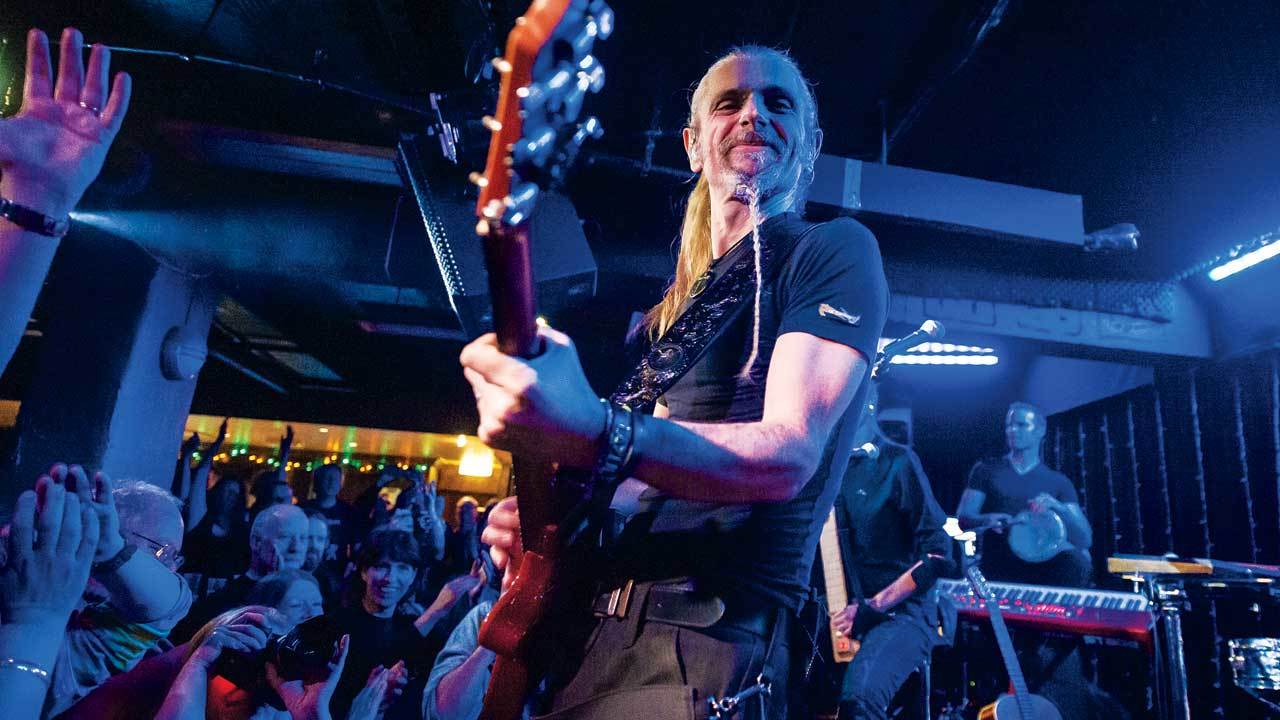For a band whose songs are as undeniably epic as Lazuli’s, a show like this is very much a doubled-edged experience. On one hand, their blend of Tuareg rhythms, off-kilter electronica and Floydian guitar is astonishingly powerful at close quarters, but it does make you wonder why they’re not playing much larger venues. Perhaps it’s a language issue, with singer Dominique Leonetti’s awkward attempts at English limited to remarks about travelling to England on school exchange trips and driving on the right-hand side of the road. Although his introduction to Le Mar Du Passé, a song about the rise of the far right in France, is greeted by the kind of roar that suggest there aren’t many neo-Nazis in the room. Sometimes language really isn’t a barrier.
Visually speaking, they’re an extremely alluring bunch. Dominque looks like a Middle Earth Bjorn Borg, with a physique so fat-free it’s conceivable he’s capable of kicking your actual skin off using some sort of wildly dangerous martial art. Guitarist Gédéric Byar has dreadlocks that tumble towards his waist and a beard to match, while Claude Leonetti perches on a stool throughout, the fingers on his good hand gliding over the léode, a hand-built instrument somewhere between a guitar, a synthesiser and a musical saw. It might look like a hod from which someone has removed the bricks, but it sounds utterly extraordinary, soaring and wailing and sounding like a true instrument of the gods.
It’s a stunning show, from the gentle, slow-build opener Le Temps Est À La Rage to the climactic Nos Âmes Saoules, which finds Dominique and Gédéric dancing through the audience. In-between, the band introduce tribal chant and French horn, and tip a hat to Nine Inch Nails, Peter Gabriel and the Cardiacs. Sometimes it sounds like the rowdier moments on The Wall being performed by Tinariwen, and it’s utterly majestic. And just when you think it couldn’t get any more celestial, Dominique performs a song while holding a light under his face, in the manner of a cub scout attempting to terrify the more junior members of the pack.
At the end, the entire band gather round a marimba for the cunningly titled 9 Hands Around The Marimba, a looping, hypnotic affair that’s only interrupted when Gédéric and Dominique switch places and the piece slowly transforms into a clever cover of David Bowie’s Heroes. As the finale arrives, there isn’t a frown in the house, with the crowd chanting the band’s name as Gédéric gleefully flicks his plectrum into the audience. Why is it that musicians playing the most demanding, serious music of all often seem to be the ones enjoying themselves the most?

